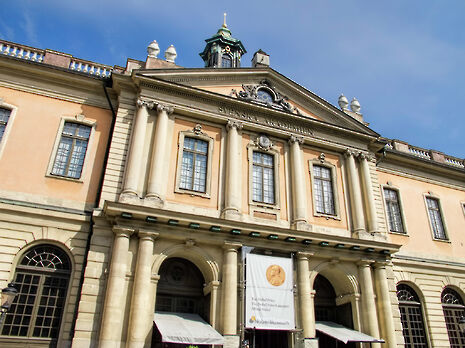UK universities struggling in Nobel quest
New data shows overall British success in earning Nobel Prizes, but also reveals UK institutions failing to compete with American rivals

New analysis shows that US institutions are far outstripping their UK rivals in the number of Nobel Prizes received, despite the UK producing the second highest number of Nobel Laureates since the millennium.
The data, released by this week by The Times Higher Education, shows British academics receiving 12 Nobel Prizes since the year 2000, second to academics based in the USA, who received 71 out of a possible 146 Prizes. The data also outlines the countries and the Higher Education institutions that have been most successful this century in producing recipients of the world-renowned prize.
American success is also reflected in the institutions’ tables, with American universities taking the entirety of the top eight positions. American supremacy stems in part from the so-called “Golden Year of 2006”, in which all that year’s Nobel Prize winners heralded from and were affiliated with America and its institutions.
From a British perspective, the findings are mixed. On one hand, it reveals British successes, with British academics receiving 12 Nobel prizes since 2000, giving the UK second place in the rankings. However, UK institutions failed to break into any of the top ten positions on the list for Higher Education establishments.
Despite failing to notch a position in the top ten list of institutions, Cambridge's position at number 12 is a significantly better result than Oxford. Indeed, the latter institution has been without an affiliated Nobel Laureate since 2000 and does not appear in the rankings at all. It will come as scant consolation to the two great English universities that the data’s other surprising revelation is that their old American rival Harvard narrowly missed out on 10th place, despite having retained its global top spot in recently-released university rankings.
The overall failure of British institutions, says the editor of The Times Higher Education rankings, Phil Baty, exemplifies something significant about the current state of British Higher Education. According to Baty, the rankings are “a warning sign” that should flag up some important questions, including whether “...the uniquely pressurised atmosphere created by a series of funding cuts and a growing culture of short-termism and target-setting taking its toll on our academics' ability to truly find the space to think big”.
Taking the last two remaining places on the institution list are Israel's Technion and Germany's Max Planck Society, taking eighth and tenth place, respectively. This is yet another exciting success for both institutions, given both had seen affiliated academics awarded the 2014 and the 2013 Nobel Prizes in Chemistry respectively, substantiating Baty’s claim that the list "gives a snapshot of universities at the very top of their game".
Baty believes that the institutions who have been successful in securing Nobel Prizes are "those willing to give their academics the freedom and support to fulfil their potential... nurturing the creativity, the freedom and the often rather maverick thinking can lead to the most ground-breaking scientific discoveries."
Meanwhile, recent Australian successes in the field of Physiology or Medicine have left it the only country whose nationals received all of their awards in the same area of research.
This is not the first instance of bad news for Cambridge concerning Nobel Prizes. Last week, Varsity reported that world-renowned classicist Professor Mary Beard has criticised Cambridge City Council’s plans to name streets after Cambridge Nobel Laureates, a decision that would leave only one out of 15 streets named after a woman.
A university spokesman has yet to respond to Varsity's request for comment on the rankings.
 News / Cambridge launches plan to bridge ‘town and gown’ divide27 October 2025
News / Cambridge launches plan to bridge ‘town and gown’ divide27 October 2025 News / Government announces £400m investment package for Cambridge25 October 2025
News / Government announces £400m investment package for Cambridge25 October 2025 News / Cambridge don appointed Reform adviser23 October 2025
News / Cambridge don appointed Reform adviser23 October 2025 News / SU announces vote on NUS affiliation17 October 2025
News / SU announces vote on NUS affiliation17 October 2025 News / Climate and pro-Palestine activists protest at engineering careers fair25 October 2025
News / Climate and pro-Palestine activists protest at engineering careers fair25 October 2025










